Ichirou Mizuki "Aniki" (水木一郎) (original) (raw)
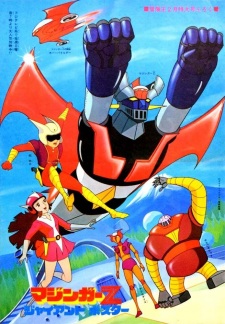
TV, 1972, 92 epsMe:- Author:10
Probably the most important piece on this list as far as the performance of Ichirou Mizuki goes, features many hit songs including probably the song that he is most famous for, "Mazinger Z", the opening theme for the series.
The performances in the series I'd say play a crucial role when it comes to the experience that is the "Mazinger Z" series and the performances are directly linked into some of the most iconic visual and narrative moments in the series, which elevates the performance and the linked connection into a new level when it comes to the combined experience of these two aspects.
Songs to look out for:
Mazinger Z (マジンガ-Z)
Z no Theme (Zのテーマ)
Bokura no Mazinger Z (ぼくらのマジンガ-Z)
Tatakau Kabuto Kouji (戦う兜甲児)
Soratobu Mazinger Z (空飛ぶマジンガ-Z)
Waga Tomo Mazinger Z (わが友マジンガ-Z)
Futari ni Nareba (二人になれば)
Minerva X ni Sasageru Uta (ミネルバXに捧げる歌)
Mazinger Waga Machine (マジンガーわがマシン)
Mazinger Ouen Uta (マジンガー応援歌)
Mazinger Shineitai (マジンガー親衛隊)
Seigi no Tame ni (正義のために)
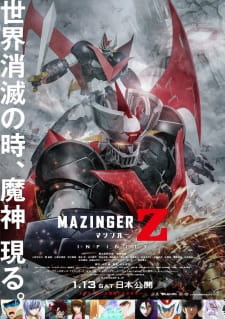
Movie, 2018, 1 epMe:- Author:10
Remaster version of the classic hit song "Mazinger Z", I'd say it further enhances the impact and perspective of the classic song, while also prodiving an interesting perspective to his long career.
The remaster provides an opportunity to relive the iconic performance in a new setting that I'd say provides a satisfying conclusion to the experience as a whole.
Songs to look out for:
Mazinger Z Infinity Version (マジンガーZ / INFINITYバージョン)
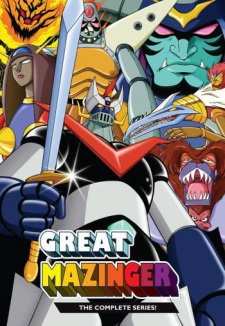
TV, 1974, 56 epsMe:- Author:10
Continuation of the Mazinger series and many more classic songs from "Aniki" The performances in the series I'd say further enhance the "vibe" that was already present in the original Mazinger Z series and "raise the stakes" so to speak.
Songs to look out for:
Ore wa Great Mazinger (おれはグレートマジンガー)
Yuusha wa Mazinger (勇者はマジンガー)
Tetsuya no Theme (鉄也のテーマ)
Great Mazinger no Ballad (グレートマジンガーのバラード)
Kate Great Mazinger (勝てグレートマジンガー)
Great Mazinger Sanka (グレートマジンガー賛歌)
Seigi no Tame ni (正義のために)
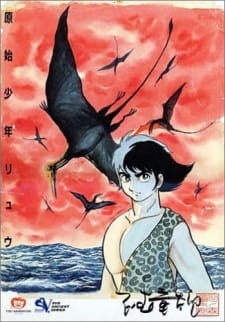
TV, 1971, 22 epsMe:- Author:10
The Anisong "debut" performance for "Aniki", it is also the first series which includes songs from both "Aniki" and "Micchi".
The performance is very "down to earth" and adds a "mysterious" vibe of looming danger into the series. Definitely one of his finest performances as far as laying out the thematic essence of the series with the performance goes.
Songs to look out for:
Genshi Shounen Ryuu ga Iku (原始少年リュウが行く)
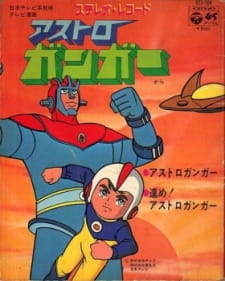
TV, 1972, 26 epsMe:- Author:9
The first performance when it comes to robot series, while the performance takes some elements from the earlier performance "Genshi Shounen Ryuu" The overwhelming "power" is not as present as in the subsequent performances, where it is usually one of the key factors.
Songs to look out for:
Astroganger (アストロガンガー)
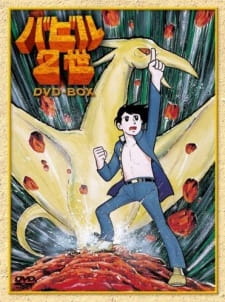
TV, 1973, 39 epsMe:- Author:10
The performance exemplifies the themes of "exceptionalism", "hero" and the weight of "power" and "responisibility" in the face of opposition. The performance and the series draws parallels to both, super robot series and magical girl series, both of which I'd say are represented in the related experience of the series and the performance.
Songs to look out for:
Babel Nisei (バビル2世)
Seigi no Chounouryoku Shounen (正義の超能力少年)
Ai wa Maboroshi (愛はまぼろし)
Senshi Hitori (戦士ひとり)
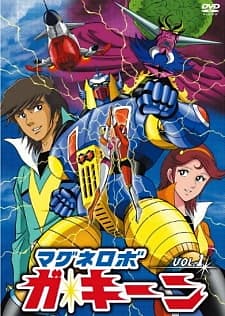
TV, 1976, 39 epsMe:- Author:10
Features duet performances with "Micchi", which I'd say is one of their best duet performances that elevates the musical atmosphere of the series into a new level.
The series features "a pair" of main characters where the important aspect is how they "unite". This theme is heavily represented in the performance as in the duet, both Mitsuko Horie and Ichiro Mizuki perform their parts with "strength" and they show the will to overcome "opposition" while showing their "unity" these are integral parts of the "series" as well as the "performance"
Songs to look out for:
Tatakae Ga-Keen (たたかえ!ガ・キーン)
Takeru to Mai no Uta (猛と舞のうた)
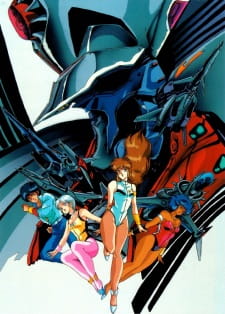
OVA, 1987, 3 epsMe:- Author:10
Another duet performance with "Micchi" this time the performance gives off a similar but still distinct vibe that resembles some of their earlier duets but the performance feels more "raw" and "pure" in comparison.
The performance has more of a "wild" element to it when compared to some of the other performances that are essentially held back by the "aspects" of the series that they are linked to. However here you can experience the "freedom" that can rarely be seen in many of these performances.
Songs to look out for:
CROSS FIGHT! (CROSS FIGHT!)
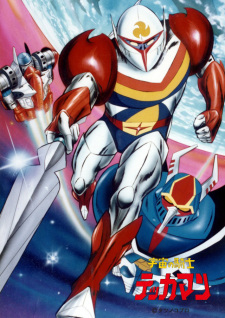
TV, 1975, 26 epsMe:- Author:10
Part of the "Tatsunoko Super Hero" Series and I'd say that the performance of Ichirou Mizuki embodies the "strength" that is linked to the series and the "character". The performance also radiates "justice" as is expected of a righteus hero. Easlily one of his top performances I'd say.
Songs to look out for:
Tekkaman no Uta (テッカマンの歌)
Space Knights no Uta (スペースナイツの歌)
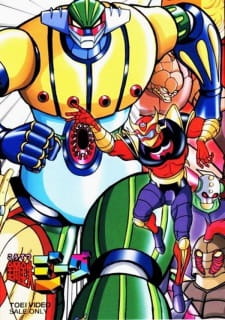
TV, 1975, 46 epsMe:- Author:10
Another performance full of "strength" and "raw power". I'd say one of the better examples of those themes explored in a performance that I've been able to experience.
Songs to look out for:
Koutetsu Jeeg no Uta (鋼鉄ジーグのうた)
Hiroshi no Theme (ひろしのテーマ)
Ore to Jeeg wa Kyoudai nano da (おれとジーグは兄弟なのだ)
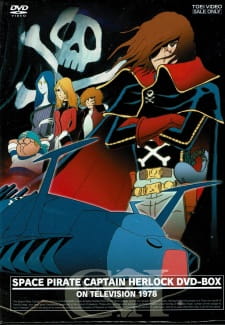
TV, 1978, 42 epsMe:- Author:9
The performance focuses on the titular character, and portrays his "approach" to the surrounding aspects, one of the main themes being "solitude" and how it affects the character.
Songs to look out for:
Captain Harlock (キャプテンハーロック)
Warera no Tabidachi (われらの旅立ち)
Waga Tomo Waga Inochi (わが友わが命)
Ginga Komoriuta (銀河子守歌)
Mukashi Mukashi (むかしむかし)
Imouto-tachi yo (妹たちよ)
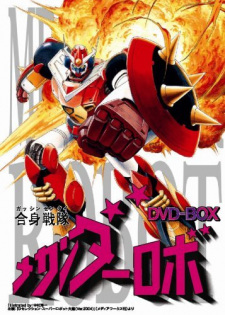
TV, 1977, 35 epsMe:- Author:10
The performance highlights some aspect famous from the performance in "Mazinger Z" but the overall experience of the perfromance is relatively different as the "strength" of the experience doesn't appear to come from "raw power" only.
Songs to look out for:
Tri-attack! Mechander Robo (トライアタック!メカンダーロボ)
Sasurai no Hoshi Jimmy Orion (さすらいの星ジミーオリオン)
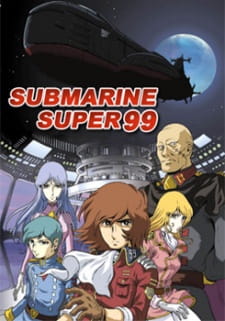
TV, 2003, 13 epsMe:- Author:9
Very atmospheric performance, embodies the depth, silence and darkness of the ocean and the undersea expereince. The performance also has an emotional aspect to it and it is contrasted perfectly by the performance of Mitsuko Horie that also appears in the series.
Songs to look out for:
Sailing Mirai e (セイリング 未来へ)

TV, 1973, 46 epsMe:- Author:9
The performance explores the worldview of the main character, main themes include recklessness, "passion" and "youth".
Songs to look out for:
Samurai Giants (侍ジャイアンツ)
Samurai Banba Ban (サムライ番場蛮)
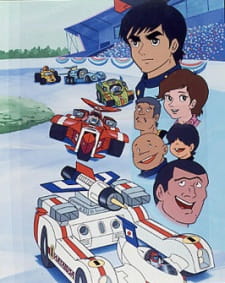
TV, 1976, 21 epsMe:- Author:9
Something of a different experience when compared to the "absolute power" usually featured in some of the other performances. The performance is mainly carried by the presence of "ability" and the relating aspects.
Songs to look out for:
Dash! Machine Hayabusa (ダッシュ!マシンハヤブサ)
Grand Prix Boogie (グランプリ・ブギ)
Asu ni Mukatte Hashire (明日に向って走れ)
Fight! Hayabusa Ken (ファイト!ハヤブサ・ケン)
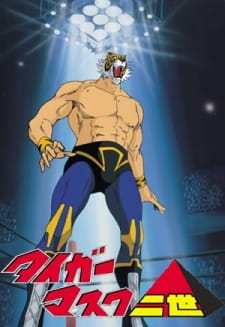
TV, 1981, 33 epsMe:- Author:10
The performance takes heavily from the themes of the original series including the original performance. Compared to the original series performance I'd say that the experience relating to the performance here features more of a "strength of an individual" based approach where as the original approached the series from a perspective of "strength" as a raw force.
Songs to look out for:
Tiger Mask Nisei (タイガーマスク二世)
Inochi wo Kakete (いのちをかけて)
Otoko no Tatakai (男の戦い)
Boku wa Shiranai (ぼくは知らない)

OVA, 1998, 13 epsMe:- Author:9
Very impactful and iconic performance, embodies the essence of the 70s mecha scene in a brilliant manner while also drawing parallels to the more "modern" approach.
The strengths of Ichirou Mizuki and his delivery are used to their fullest potential in the perfromance and the "strength" that flows throughout the performance, really is able to impact the audience.
Songs to look out for:
Ima ga Sono Toki da (今がその時だ)
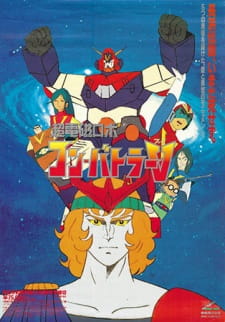
TV, 1976, 54 epsMe:- Author:9
Performance draws some parallels to the success of "Mazinger Z", the structure of the performance is also similar. The focus in the performance however is more strictly focused to the singular point of interest than in "Mazinger Z" which I'd say sets it apart as far as the performance goes.
Songs to look out for:
Combattler V (コン・バトラ-V)
Ike! Combattler V (行け!コン・バトラ-V)
Ikuzo! Seigi no Tatakai ni (行くぞ!正義の戦いに)
Hyoubamo no Omoi (豹馬もの思い)
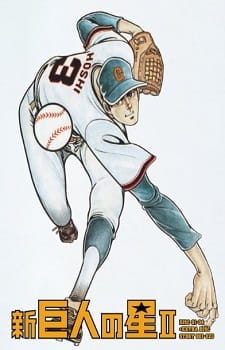
TV, 1979, 23 epsMe:- Author:10
After the first 2 seasons of the "Kyojin no Hoshi" series I'd say that in this part the performance of Ichirou Mizuki fits in a good way. Essentially this series draws heavy parallels to the original series and the key aspect of the series and the performances is time, and how the passing time affects the characters and the relationships.
These themes are relfected in the performance as the performance is more melancholic and gives insight on how the character and the relationships are affected. The performance also draws some parallels to the original series and how some key aspects in the original series have affected the overall relationships when it comes to the series.
Songs to look out for:
Kokoro ni Ase wo (心に汗を)
Omae ga Ireba (お前がいれば)
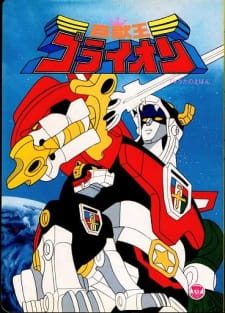
TV, 1981, 52 epsMe:- Author:9
The performance presents itself in an upfront manner, the "strength" and "unity" are strong themes that are present in the performance.
The parallel between the themes present in the performance and the series is something that enhances the experience further when it comes to this work.
Songs to look out for:
Tatakae! Golion (斗え!ゴライオン)
Gonin de Hitotsu (五人でひとつ)
Kuroshishi yo (黒獅子よ)
Golion Formation (ゴライオンフォーメーション)
Golion Sanka (ゴライオン讃歌)

TV, 1982, 22 epsMe:- Author:9
Enhanced performance from the "Captain Harlock" series, the performance in this series goes more "in depth" to the relationships and the characters. The performance also embraces the typical "Leji" atmosphere more than the performance in the previous series.
Songs to look out for:
Ore-tachi no Funade (おれたちの船出)
Harlock no Ballad (ハーロックのバラード)
Ore wa Harlock (おれはハーロック)
Sei no Ballad (正のバラード)
Ai no Elegy (愛のエレジー)
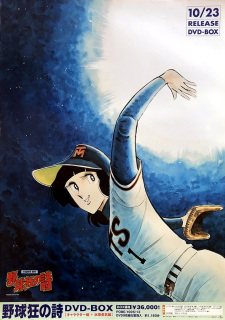
TV, 1977, 25 epsMe:- Author:10
The first set of theme song performances done by Mitsuko Horie established the theme and overall spirit of the series. Now the Second set of theme songs I'd say play an interesting contrast to the already established set of themes and further evolve the thematic depth of the series.
Songs to look out for:
Kita no Ookami Minami no Tora (北の狼南の虎)
Kaasan no Akari (かあさんの灯)
Eikou no Kanata e (栄光の彼方へ)
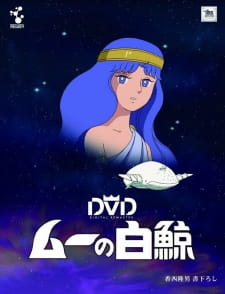
TV, 1980, 26 epsMe:- Author:9
An unique feeling attached to the performance, the performance focuses mainly to the emotional aspect to achieve that feeling. Also gives of some "Leji" type of performance vibes.
Songs to look out for:
Muu e Tobe (ムーへ飛べ)
Shinjirukai (信じるかい)
Yuusha no Ken wo Te ni (勇者の剣を手に)
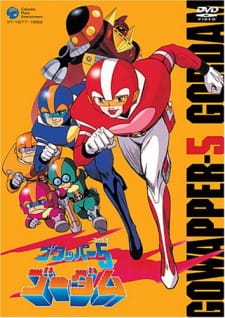
TV, 1976, 36 epsMe:- Author:9
Relatively "straightforward" performance and matches on what you'd expect from the performance. The series itself presents itself as a kind of a hybrid between "Tatsunoko" and the "Popular Robot Series". The performance of Ichirou Mizuki I'd say enhances that connection.
Songs to look out for:
Ikuzo! Godam (行くぞ!ゴーダム)
Gowapper 5 no Uta (ゴワッパ-5の歌)
Guts de Ganbare (ガッツでがんばれ)
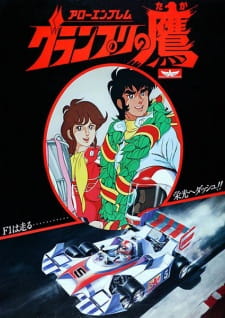
TV, 1977, 44 epsMe:- Author:9
Similar atmosphere in the performance when compared to the performance in "Machine Hayabusa".
Songs to look out for:
Grand Prix no Taka (グランプリの鷹)
Racer Blues (レーサーブルース)
Taiyou ni Hashire (太陽に走れ)
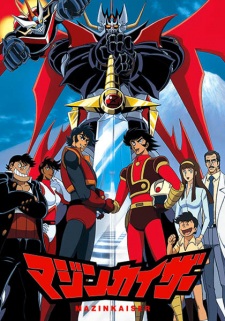
OVA, 2001, 7 epsMe:- Author:9
Amplifies the "strength" aspect of the "Mazinger Z" series even further when it comes to the performance in this series, the effect draws its power from the delivery of Ichirou Mizuki which I think is utilized well in the perfromance here.
Songs to look out for:
Tornado (TORNADO)
Mazinkaiser no Theme (マジンカイザーのテーマ)
Mazinkaiser (マジンカイザー)
Mazinkaiser no Ballad (マジンカイザーのバラード)
Mazinger Sanka (マジンガー讃歌)
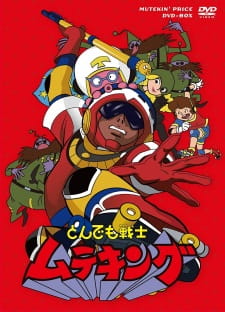
TV, 1980, 56 epsMe:- Author:9
Another series in the Tatsunoko "Super Hero" series, the performance is relatively laid back and there isn't really any "serious tension" in the atmosphere when it comes to the performance.
Songs to look out for:
Roller Hero Muteking (ローラーヒーロー・ムテキング)
Yuuki ga Areba (勇気があれば)
Yuke Yuke Muteking (ゆけゆけムテキング)
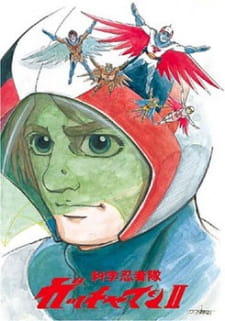
TV, 1978, 52 epsMe:- Author:10
More of a complementary performance when it comes to the series as a whole, but relatively important when it comes to exploring the character, through utilizing the performance.
Songs to look out for:
Moyuru Hi no tori (燃ゆる火の鳥)
Oowashi wa Takaku Tobu ~Ken no Uta~ (大鷲は高く飛ぶ~健の歌~)
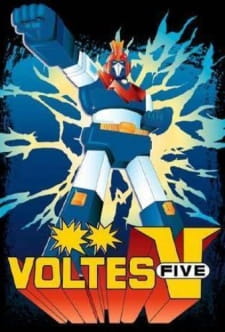
TV, 1977, 40 epsMe:- Author:10
In contrast to the strong performance of Mitsuko Horie in the opening theme, this performance brings forward the soft and calm aspects, and as far as the whole series goes, I'd say that they play together really well.
Songs to look out for:
Chichi wo Motomete (父をもとめて)
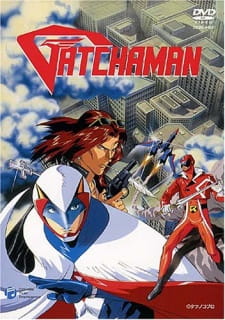
OVA, 1994, 3 epsMe:- Author:10
A remaster of the classic song, from the original series, this time perfromed by Ichirou Mizuki.
The performance draws heavy parallels to the original performance but as the series features some "thematic" differences when compared to the original I'd say the performance is also able to take that into account when it comes to the experience as a whole.
Songs to look out for:
GATCHAMAN '94 (GATCHAMAN '94)
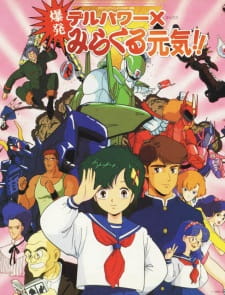
OVA, 1986, 1 epMe:- Author:10
The film has very strong musical performance and cast when it comes to the performance scenes and I'd say that the performance of Ichirou Mizuki and Mitsuko Horie partly carry the imposrtant parts of the film when it comes to the experience.
Mitsuko Horie providing a strong and decisive opening theme, setting the tone and the initial setup for the entire experience and the film. The other performances are mainly providing contrast to that initial performance I'd say. Ichirou Mizuki being one of the best to contrast with Mitsuko Horie I'd say stands out because of that.
Songs to look out for:
Bakuhatsu! Miracle Genki (爆発!みらくる元気)
Ganbare! Manami! (がんばれ!まーなーみー!)
Hashire! Kyuukyoku Machine Delpower (走れ!究極マシンデルパワー)
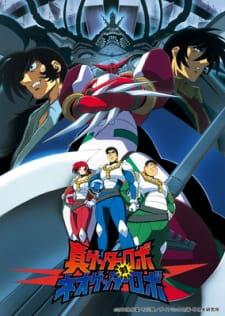
OVA, 2000, 4 epsMe:- Author:9
Similar atmosphere in the performance than in the other modern "Getter Robo" performance.
Songs to look out for:
STORM (STORM)
RISING (RISING)
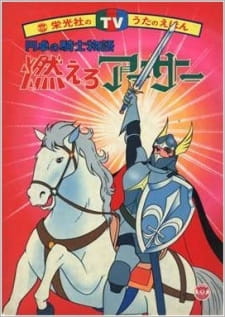
TV, 1980, 22 epsMe:- Author:9
Relatively similar vibe when compared to the performance of the first season, and it doesn't particularly stand out on its own, but when coupled with the performance in the ending theme I'd say that the experience is lot more "whole".
Songs to look out for:
Ore wa Arthur (おれはアーサー)
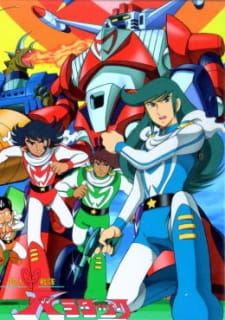
TV, 1977, 31 epsMe:- Author:9
Songs to look out for:
Choujin Sentai Baratack (超人戦隊バラタック)
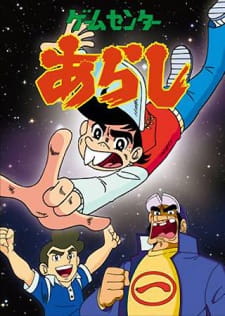
TV, 1982, 26 epsMe:- Author:9
Songs to look out for:
Game Center Arashi (ゲームセンターあらし)
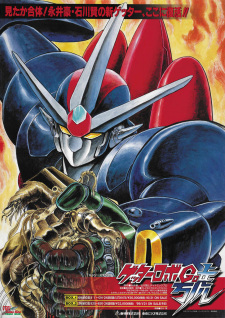
TV, 1991, 50 epsMe:- Author:9
Songs to look out for:
Getter Robo Go (ゲッターロボ號)
Tomodachi ni Naritai (友だちになりたい)
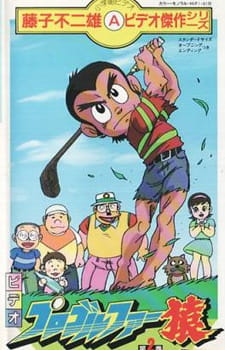
TV, 1985, 143 epsMe:- Author:9
Songs to look out for:
Yume wo Kachi Torou (夢を勝ちとろう)
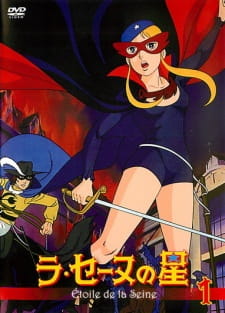
TV, 1975, 39 epsMe:- Author:10
When it comes to this series as far as the performances go they are dominated by Mitsuko Horie, however the performance by "Aniki" I'd say plays really well into that, as it compliments and contrasts the "tone" of Mitsuko Horie and thus adds further depth into the performance aspect of the series.
Songs to look out for:
Kuroi Tulip (黒いチューリップ)
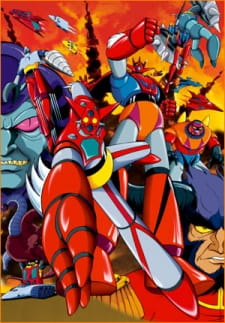
TV, 1974, 51 epsMe:- Author:9
Songs to look out for:
Heiwa no Senshi-tachi (平和の戦士たち)
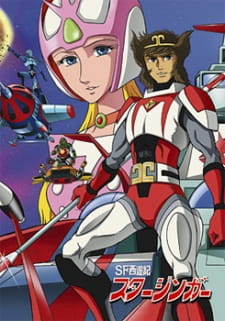
TV, 1978, 73 epsMe:- Author:10
Songs to look out for:
10-man-kounen no March (10万光年のマーチ)

OVA, 1990, 1 epMe:- Author:9
Songs to look out for:
Transformers Z no Theme (トランスフォーマ-Zのテーマ)
Mirai no Kimi e (未来の君へ)
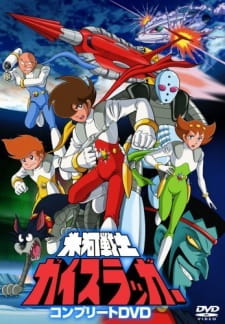
TV, 1977, 20 epsMe:- Author:9
Songs to look out for:
Hyouga Senshi Gaislugger (氷河戦士ガイスラッガー)
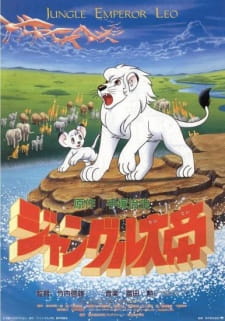
TV, 1989, 52 epsMe:- Author:9
Songs to look out for:
Savannah wo Koete
Fuushoku no Runner (風色のランナー)
Bokura no Paradise (ぼくらのパラダイス)
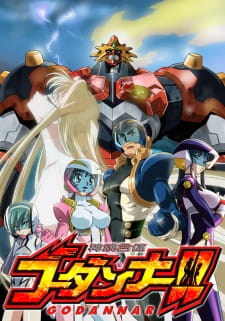
TV, 2003, 13 epsMe:- Author:9
Another duet performance that I'd say focuses mainly of the "over the top" aspect drawing some "parallels" to "Ga-Keen" as far as the performance goes. This I'd say enables looking at the elements of the series in a new fashion while keeping the original parallels brought by the performance in mind.
Songs to look out for:
Zangou no Hitsugi (塹壕の棺)
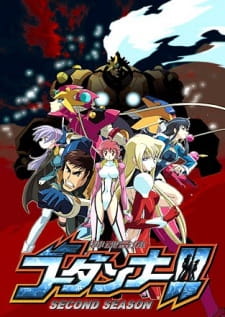
TV, 2004, 13 epsMe:- Author:9
Another duet performance that I'd say focuses mainly of the "over the top" aspect drawing some "parallels" to "Ga-Keen" as far as the performance goes. This I'd say enables looking at the elements of the series in a new fashion while keeping the original parallels brought by the performance in mind.
Songs to look out for:
ENGAGE!!! Godannar (ENGAGE!!!ゴーダンナー)
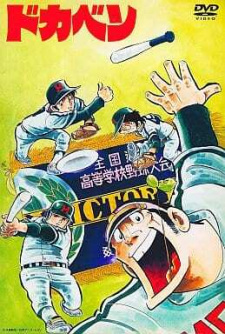
TV, 1976, 163 epsMe:- Author:10
Songs to look out for:
Seishun Fever (Combat March) (青春フィーバー(コンバット・マーチ))
Taiyou no Ko (太陽の子)

TV, 1977, 155 epsMe:- Author:9
Songs to look out for:
Lupin III Ai no Theme (ルパン三世愛のテーマ)
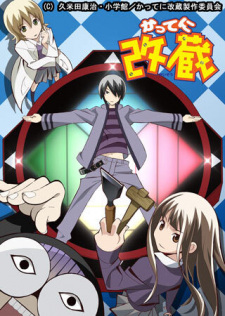
OVA, 2011, 6 epsMe:- Author:9
Songs to look out for:
Katte ni Kaizou Shitemo Iize (かってに改造してもいいぜ)
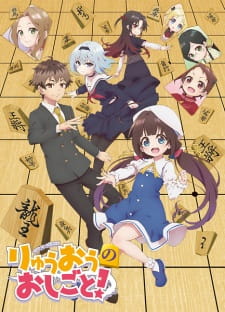
TV, 2018, 12 epsMe:- Author:9
A Very powerful duet performance by Mitsuko Horie and Ichirou Mizuki, they also voiced the parents of one of the main characters of the series. However I'd say that the duet performance is by far the most powerful duet performance that I've been able to expereince from them.
The duet tackles many themes that I'd say can be linked to the series itself and thus I'd say that the duet is relatively important part of the "experience" when it comes to the series
Songs to look out for:
Wakura no Ai no Monogatari (和倉のあいの物語)

OVA, 1999, 4 epsMe:- Author:10
Songs to look out for:
Dare ka ga Kaze no Naka de